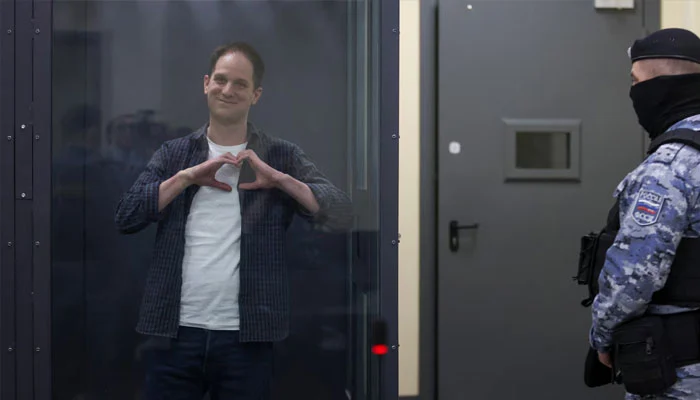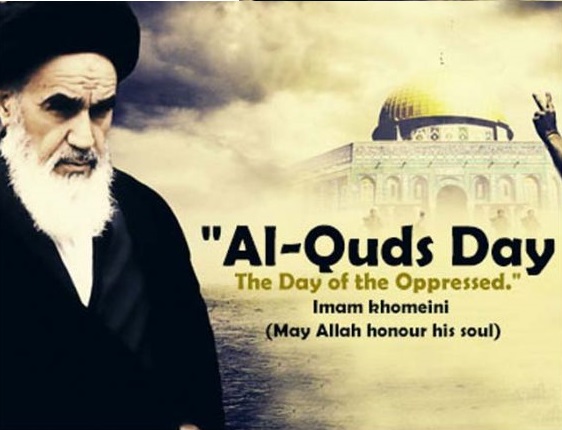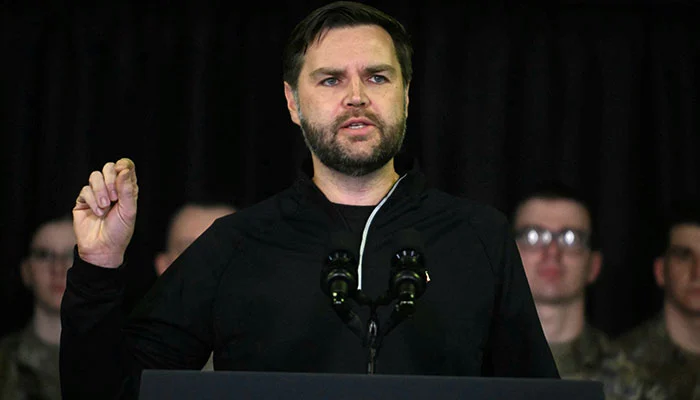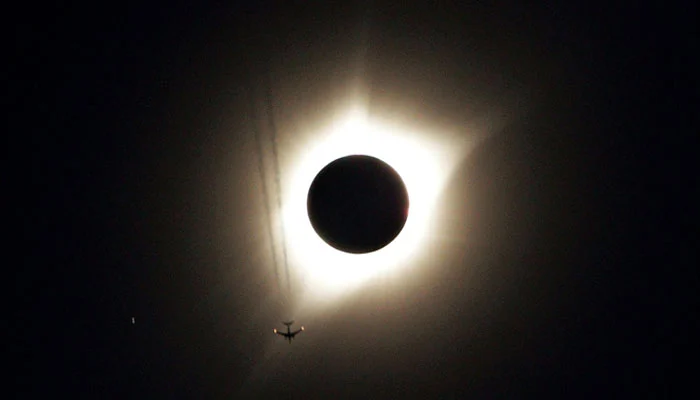US journalist Evan Gershkovich and a Russian intelligence colonel jailed for a Berlin murder were among two dozen prisoners freed Thursday in the biggest East-West prisoner swap since the Cold War.
The intricate multinational deal that freed the Wall Street Journal reporter and others including former US marine Paul Whelan involved months of secret negotiations, and finally ended with a dramatic exchange on the airport tarmac in Turkey’s capital Ankara.
Overjoyed family members appeared at the White House alongside US President Joe Biden, who said they’d been able to phone their freed loved ones from the Oval Office.
“Their brutal ordeal is over,” Biden told a news conference.
Biden called the leaders of allies Germany, Poland, Slovenia and Norway to thank them for agreeing to free Russian prisoners under the deal, and Turkey for agreeing to host the handover.
“They made bold and brave decisions” to release Russians held for espionage and other crimes in return for the Westerners and Russian dissidents and human rights activists, he said.
In total, 10 Russians — including two minors — were exchanged for 16 Westerners and Russians imprisoned in Russia, said a statement released by the Turkish presidency.
Among those returned to Moscow was Vadim Krasikov, a Russian intelligence agent imprisoned in Germany for killing a former Chechen rebel commander in a brazen assassination.
German Chancellor Olaf Scholz said the “difficult” swap had “saved lives.”
‘Biggest hug’
President Vladimir Putin gave the Russian prisoners a red carpet welcome at Moscow airport, embracing them as they descended from their plane, TV images showed.
“I want to congratulate you on your return to the motherland,” Putin said.
Biden and Vice President Kamala Harris, the presumptive Democratic presidential nominee, were to greet the freed US prisoners outside Washington later in the day.
The Wall Street Journal said it was “overwhelmed with relief” at the release of Gershkovich, 32, who was detained in Russia in March 2023 on a reporting trip and sentenced in July to 16 years in prison on spying charges that were denounced by the United States.
“We can’t wait to give him the biggest hug and see his sweet and brave smile up close,” Gershkovich’s family said in a statement.
Biden later posted a picture of a smiling Gershkovich and other detainees on a plane.
The group also included Whelan, who was detained in 2018 and had previously complained of being abandoned by Washington, and another American journalist, Alsu Kurmasheva.
Vladimir Kara-Murza, a Russian Kremlin critic with US residency, also was among those freed.
Biden, notching up a major diplomatic success in his last six months in office after ending his reelection bid, described their convictions in Russia as “show trials.”
Speculation about a deal had swirled for days after several detainees had disappeared from the prison system, but there was no confirmation until they finally switched planes in Ankara.
“We held our breath and crossed our fingers,” US National Security Advisor Jake Sullivan said.
‘Pawns’
The White House led months of behind-the-scenes negotiations with Russia despite tensions over Ukraine — but it also had to lean on European allies reluctant to hand convicted criminals back to Moscow.
Biden even called the Slovenian premier an hour before his shock election bow-out on July 21 to push for the release of two Russians.
A total of 12 prisoners released by Russia will go to Germany, including opposition politician Ilya Yashin, who had been jailed for criticising Russia’s invasion of Ukraine.
They also include Rico Krieger, a German who was sentenced to death in Belarus on espionage charges before a reprieve this week.
The exchange was the first between Russia and the West since star US basketball player Brittney Griner returned home in return for Russian arms dealer Viktor Bout in December 2022.
It was the biggest since 2010, when 14 alleged spies were exchanged. They included double agent Sergei Skripal, who was sent by Moscow to Britain and undercover Russian agent Anna Chapman, sent by Washington to Russia.
Before then, major swaps involving more than a dozen people had only taken place during the Cold War, with Soviet and Western powers carrying out exchanges in 1985 and 1986.
The White House revealed that an even more ambitious agreement had been on the cards with attempts to negotiate the release of Putin opponent Alexei Navalny, before he died in February this year.
Despite the rare moment of cooperation, Biden said he didn’t “need to speak” with the Kremlin leader.
Media rights group Reporters Without Borders said it was “hugely relieved” while Amnesty International said the swap was showed Putin was using “political prisoners as pawns.”




